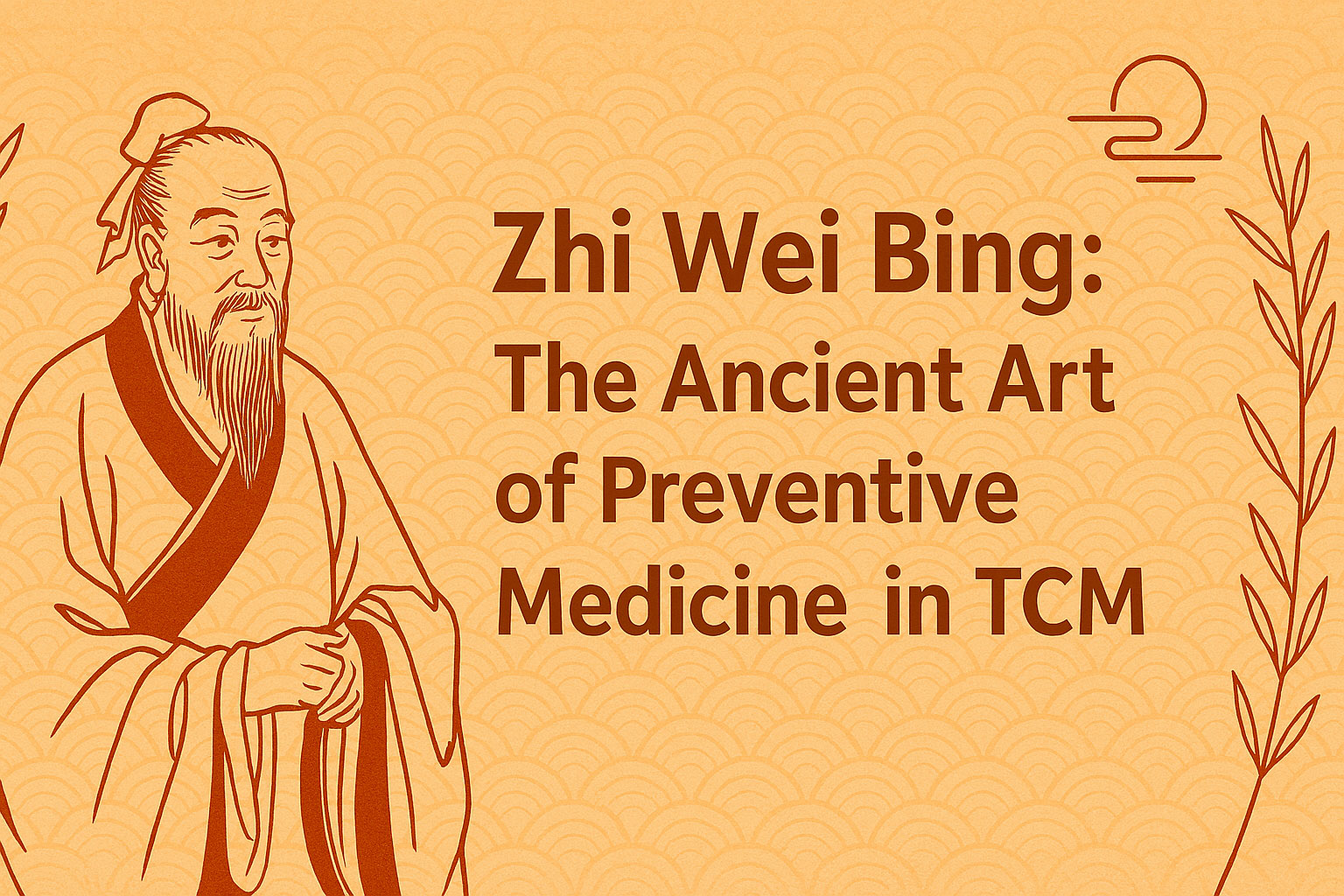Modern healthcare increasingly emphasizes preventive medicine, but this concept is far from new. Over 2,000 years ago, the foundational text of Traditional Chinese Medicine (TCM), the Huangdi Neijing (Yellow Emperor’s Inner Canon), already emphasized:
“上工治未病” — “The superior doctor treats disease before it arises.”
This principle reflects a profound medical philosophy: that true healing lies in maintaining balance, avoiding dysfunction, and observing early warning signs. In this article, we explore how the Inner Canon defines and applies preventive medicine — a concept highly relevant to today’s wellness culture.
🔶 What Is “Zhi Wei Bing” (治未病)?
“Zhi Wei Bing” means “to treat before illness occurs”, but this doesn’t only refer to physical disease. In the Neijing, it includes:
- Preventing illness in the healthy
- Addressing imbalances before symptoms arise
- Managing early-stage dysfunctions
- Preventing relapse or progression of chronic illness
This is a dynamic process of observation, adjustment, and alignment with nature — a truly holistic view of health.
🔶 Foundations in the Huangdi Neijing
The Neijing offers specific guidance on prevention:
📜 1. Follow Nature’s Rhythms (顺应自然)
“To live in harmony with the four seasons is the basis of health.”
- Wake and sleep with Yin-Yang shifts
- Eat and dress seasonally
- Adjust activity levels and emotions with climate
📜 2. Regulate Emotions (七情调和)
“Sudden anger damages the Liver; excessive joy scatters the Heart.”
Emotional moderation is vital. Unchecked emotions can cause Qi disruption and organ damage.
📜 3. Maintain Zheng Qi (正气)
“When Zheng Qi is strong, pathogens cannot invade.”
Zheng Qi refers to the body’s vital resistance — the immune, digestive, and energetic strength. Supporting Zheng Qi through rest, nourishment, and herbs is a form of everyday prevention.
📜 4. Catch Early Signs (观微知著)
TCM physicians are trained to detect subtle signs of imbalance before they manifest as disease:
- Pulse changes
- Tongue color
- Emotional shifts
- Sleep, digestion, skin, etc.
🔶 Clinical Applications of TCM Prevention
| Scenario | Preventive Action |
|---|---|
| Easily catching colds | Strengthen Lung Qi with herbs like Huang Qi (Astragalus) |
| Menstrual irregularity emerging | Regulate Liver and Blood early |
| Seasonal transitions | Use herbal teas or Qigong to harmonize internal climate |
| Aging and fatigue | Tonify Kidneys before decline sets in |
Modern TCM clinics now offer “Zhi Wei Bing” programs focusing on:
- Constitutional assessment
- Herbal tonics
- Dietary and lifestyle prescriptions
- Seasonal acupuncture
🔶 Comparison with Modern Preventive Medicine
| Focus | TCM | Western Approach |
|---|---|---|
| Timing | Detect subtle disharmony before symptoms | Screen for early-stage pathology |
| Intervention | Lifestyle, herbs, acupuncture | Vaccines, medications, labs |
| Goal | Maintain dynamic balance | Avoid clinical disease onset |
While modern prevention relies on metrics, TCM emphasizes pattern recognition, seasonal alignment, and internal harmony.
🔶 Conclusion
The Huangdi Neijing’s wisdom offers a timeless lesson: that health is not just the absence of disease, but the active cultivation of balance. The concept of “treating before illness arises” challenges us to pay attention, live mindfully, and support our body’s natural rhythms.
In the words of the ancient sages, the best physician is not the one who cures, but the one who keeps illness away.


发表回复